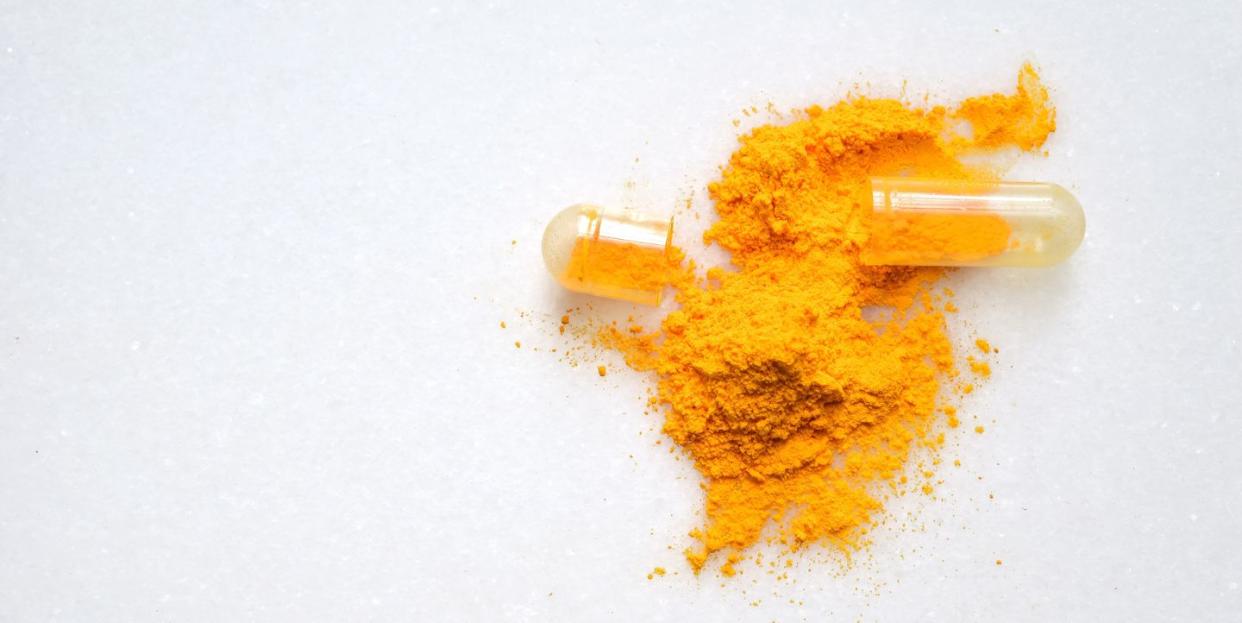What Is Berberine and Why Is It Used for PCOS? Benefits and Side Effects to Consider

Polycystic ovary syndrome (PCOS) is a condition that causes hormonal imbalance and metabolism issues that can impact your overall health and even your fertility. And, if you have PCOS, it’s understandable to want to explore the full spectrum of treatment options.
PCOS is usually managed with medications like hormonal birth control, anti-androgen medicines, and metformin, per the Office on Women’s Health (OASH), but some people swear the supplement berberine can help, too. Berberine has been used to manage a slew of symptoms of PCOS like insulin resistance, obesity, and high cholesterol—but what else do we know about berberine benefits?
What is berberine, exactly?
Berberine is a botanical compound that specifically targets a protein that’s common in insulin resistance and the generation of glucose (i.e. blood sugar). Some researchers have used berberine to manage dyslipidemia (elevated cholesterol in the blood), type 2 diabetes, and obesity to specifically counteract the cardiovascular risks from those health conditions.
Berberine benefits for PCOS
There is “solid evidence” to support taking berberine when you have PCOS, says women’s health expert Jennifer Wider, M.D. “Several studies show that it has strong potential to reduce the risk of heart disease due to its effects on lipids (i.e. fats), body composition, and hormones,” Dr. Wider says. Another study, she points out, showed potential benefits in improving fertility in some women with PCOS.
But because berberine is taken as a supplement, “it’s not regulated,” says Christine Greves, M.D., a board-certified ob/gyn at the Winnie Palmer Hospital for Women and Babies. “You don’t know the exact amount that you’re getting,” she says. That, she says, makes it difficult to recommend its use, along with how much of it to take.
Berberine side effects
Berberine is generally thought to cause minimal, if any, side effects, which is why it’s been investigated so much. However, it can lower your blood pressure and glucose levels, Dr. Greves points out. And, if you’re already on medications for blood pressure and glucose, you could end up lowering your blood pressure or glucose too much, she says.
Berberine can also interact with antidepressants, blood thinners, and beta blockers, Dr. Wider says, so you’ll want to talk to your doctor if you’re on any of those and are interested in trying berberine.
Other side effects, per Dr. Wider, can include:
Nausea
Stomach upset
Constipation
What is PCOS?
PCOS is a condition that is one of the most common causes of female infertility, according to the Centers for Disease Control and Prevention (CDC). It impacts up to 12% of U.S. women of reproductive age.
PCOS tends to cause insulin resistance, which is when a person's body can make insulin but can’t use it efficiently, raising their risk of developing type 2 diabetes. PCOS patients also have higher levels of androgens (male hormones that females also have) and that can stop eggs from being release, the CDC explains. Those higher levels of androgens can also lead to irregular periods, acne, thinning hair, and excess hair growth on the face and body.
PCOS is linked to several health conditions, per the CDC, including:
Diabetes
Gestational diabetes
Heart disease
High blood pressure
Sleep apnea
High cholesterol
Stroke
PCOS symptoms
Symptoms of PCOS can vary, but the Mayo Clinic says they generally include:
Irregular periods
Periods that last for many days or longer than a typical period
Severe acne
Male-pattern baldness
Excess facial and body hair
Ovaries that are larger than usual
Ovaries that don't work the way they should
If you’re interested in taking berberine for PCOS, talk to your doctor first about the supplement, along with your other treatment options. “This is not a first-line treatment for PCOS,” Dr. Greves says.
You Might Also Like

